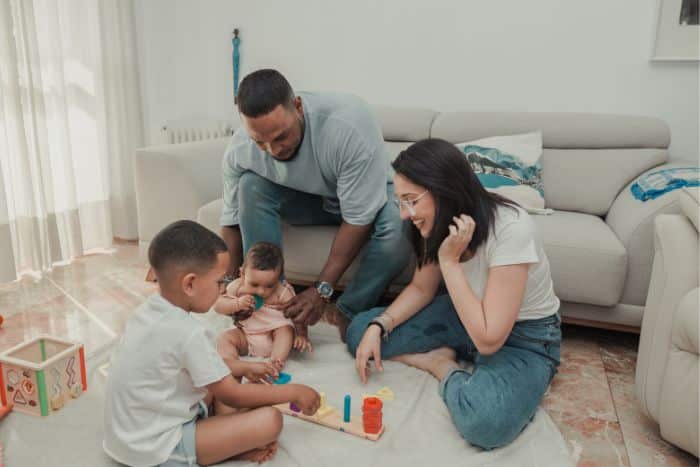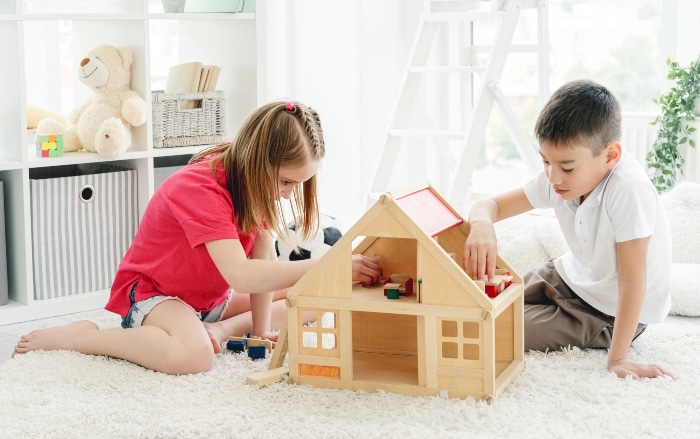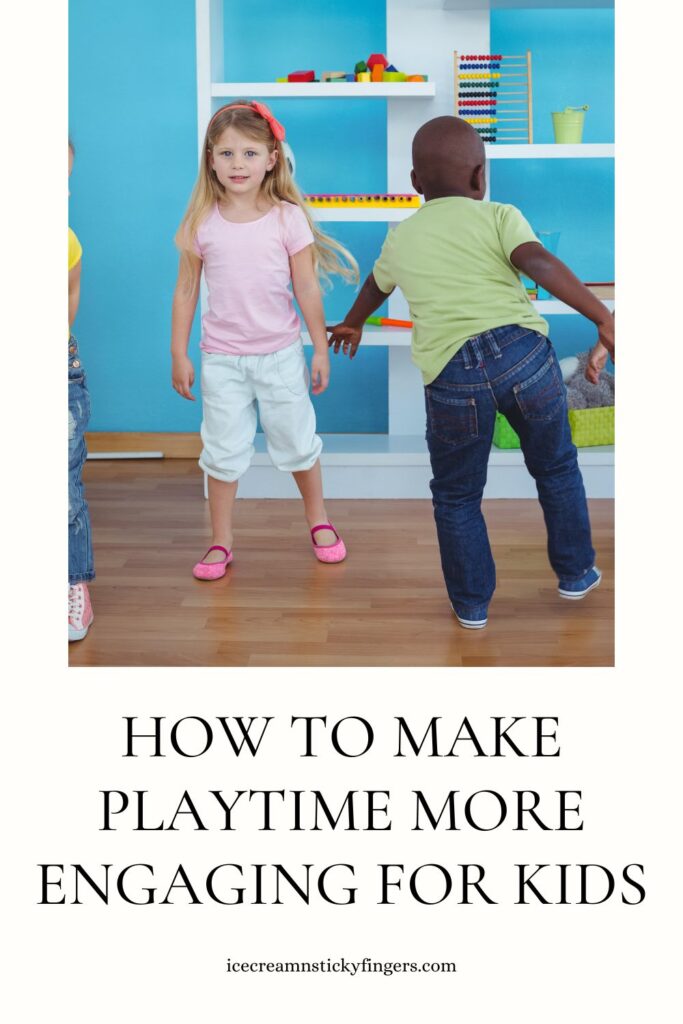Do you want to know how to make playtime more engaging for kids? Playtime is essential for teaching children how to socialize, problem-solve, participate in teamwork, and more. Here are tips on how to make playtime engaging for kids.

Switch Toys Out Periodically
If you notice your child getting bored with their toys or becoming overwhelmed by their choices, practicing toy rotation is one great tip for making playtime more engaging. This can improve resourcefulness, behavior, and creativity so that your child can have more fun.
You can set up a toy rotation schedule to make playtime more enticing for your child. Try to change up the toys your child plays with once a week or once a month. Toy rotation can make old toys feel new and allow other toys to take breaks, making them last longer.
Practice Cleaning Up Together
Teaching your child to clean up after themselves can benefit their engagement. This teaches children to take better care of their toys and practice respectfulness. It’s also a great way to spend time with your child while showing them how to treat their toys so that they don’t end up broken or lost.
Make It Interactive and Cog-Turning
As children grow, they become more confident in taking the lead on games and activities they enjoy. A great way to make playtime more engaging is to ask them questions about what they’re doing. For instance, if your child wants to make pretend food in their toy kitchen, ask them what ingredients they’re using. This works their brains and shows that you have an interest in their activities.

Furthermore, including puzzles can benefit childhood development by increasing their concentration and repetitive learning. It’s a great way for children to learn about developing patience, teach reasoning, improve hand-eye coordination, and improve problem-solving.
Explore Various Types of Playing
You can make playtime more engaging for your children by teaching them various play styles. Firstly, you can teach them object play by interacting with multiple objects outside of toys to engage their brains. This can include pretending a banana is a phone. Furthermore, you can show them outdoor play, where they can learn to play athletic or physically active games.
Rough-and-tumble play is a fun way to let your children get their energy out by wrestling, pretend fighting, playing tag, or other gentle games, such as patty-cake and concentration. This will teach your child how to socialize and learn about personal boundaries. Lastly, social play or playing pretend uses their imagination and social skills to interact with other kids.








Nice ideas. My kids have always been a fan of puzzles.
It is good to consider some innovative ways to keep kids engaged. i always found it a challenge to figure out how to keep my kids busy with activities.
It’s good to keep the toy or games cycled to keep things fresh for kids. It’s also a good practice to teach them how to clean up after themselves, that way they learn how to be more responsible and hopefully have respect for their toys as well as other people’s toys!
I love the practice cleaning up part. Parents need to help with cleanup at a early age to show kids how.
Cleaning up together has not only made playtime more responsible but has turned into a bonding activity for us.
I’ve been looking for ways to make playtime more exciting for my child, and the idea of switching toys periodically is genius. It’s true—kids often seem to lose interest when they’re faced with too many options!
These are great ideas, my boys love their puzzles, and cleaning up as well.
Those are some great selections to try out and thanks for sharing this, will definitely try those out sometime.